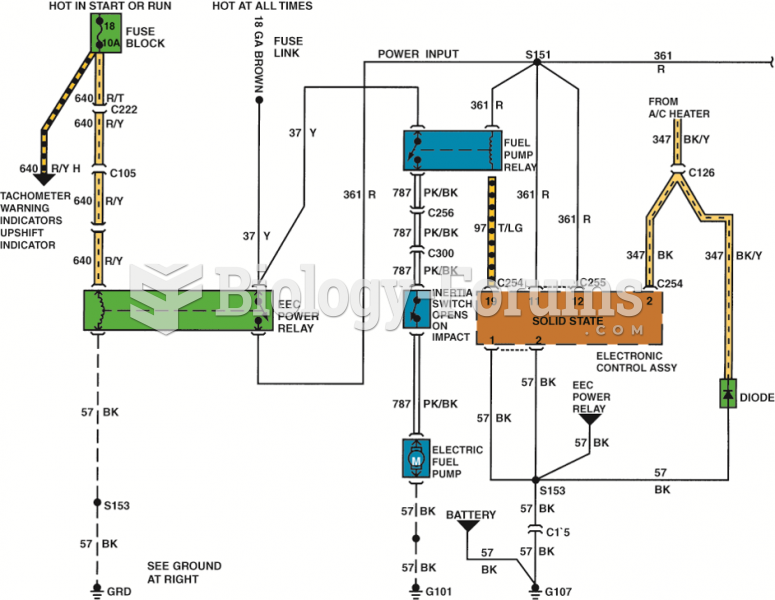|
|
|
Disorders that may affect pharmacodynamics include genetic mutations, malnutrition, thyrotoxicosis, myasthenia gravis, Parkinson's disease, and certain forms of insulin-resistant diabetes mellitus.
Asthma is the most common chronic childhood disease in the world. Most children who develop asthma have symptoms before they are 5 years old.
Before a vaccine is licensed in the USA, the Food and Drug Administration (FDA) reviews it for safety and effectiveness. The CDC then reviews all studies again, as well as the American Academy of Pediatrics and the American Academy of Family Physicians. Every lot of vaccine is tested before administration to the public, and the FDA regularly inspects vaccine manufacturers' facilities.
For high blood pressure (hypertension), a new class of drug, called a vasopeptidase blocker (inhibitor), has been developed. It decreases blood pressure by simultaneously dilating the peripheral arteries and increasing the body's loss of salt.
The familiar sounds of your heart are made by the heart's valves as they open and close.
 The tools necessary to adjust the valves on an engine with adjustable rocker arms include basic hand ...
The tools necessary to adjust the valves on an engine with adjustable rocker arms include basic hand ...
 A schematic showing that an inertia switch is connected in series between the fuel-pump relay and ...
A schematic showing that an inertia switch is connected in series between the fuel-pump relay and ...





